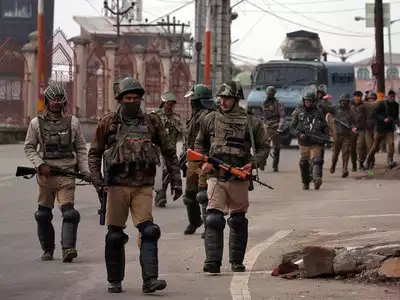
On April 22, 2025, a devastating terrorist attack in Pahalgam, Jammu and Kashmir, claimed the lives of 26 civilians, including 25 Indian nationals and one Nepali tourist, and injured 17 others. The assault, targeting a tourist bus, marks the deadliest civilian attack in the region since the 2008 Mumbai attacks.
The militant group Kashmir Resistance, believed to be a front for Pakistan-based organizations like Lashkar-e-Taiba, claimed responsibility for the attack. Gunmen emerged from nearby forests, opening fire on the bus, leading to chaos and tragedy. Indian authorities have launched a massive manhunt, detaining approximately 1,500 individuals across Jammu and Kashmir in connection with the incident.
In response, Prime Minister Narendra Modi vowed to bring the perpetrators to justice, stating, “We will pursue them to the ends of the earth.” He emphasized India’s commitment to combating terrorism and ensuring national security.
The Indian government has taken several measures following the attack:
- Suspension of the Indus Waters Treaty, a crucial water-sharing agreement with Pakistan.
- Downgrading diplomatic ties, including expelling Pakistani defense officials and reducing staff at Pakistan’s High Commission in New Delhi.
- Cancellation of previously granted visas to Pakistani citizens and a halt in the processing of new visa applications.
- Closure of the Integrated Check Post at Attari, halting cross-border trade.
Pakistan has condemned the attack but denied involvement, warning that the suspension of the Indus Waters Treaty could be seen as an act of war. In retaliation, Pakistan closed its airspace to Indian airlines, suspended trade, and expelled Indian diplomats.
Rising tensions have drawn concern from the global community. The United Nations urged both nations to exercise restraint, while leaders from the US, UK, and China condemned the attack and called for peaceful resolutions.
Domestically, political parties across India have united in condemning the attack. An all-party meeting resulted in a consensus to take decisive action against terrorism. Opposition leaders, while supporting the government’s stance, also highlighted the need to address security lapses that allowed such an attack to occur.
The Pahalgam attack has disrupted a period of relative calm and growing tourism in the region. Over 10,000 tourists have departed from Srinagar since the incident, reflecting concerns over safety.
As India and Pakistan navigate this crisis, the international community watches closely, hoping for de-escalation and a return to dialogue. The situation underscores the fragile nature of peace in the region and the urgent need for comprehensive strategies to combat terrorism and foster stability.


